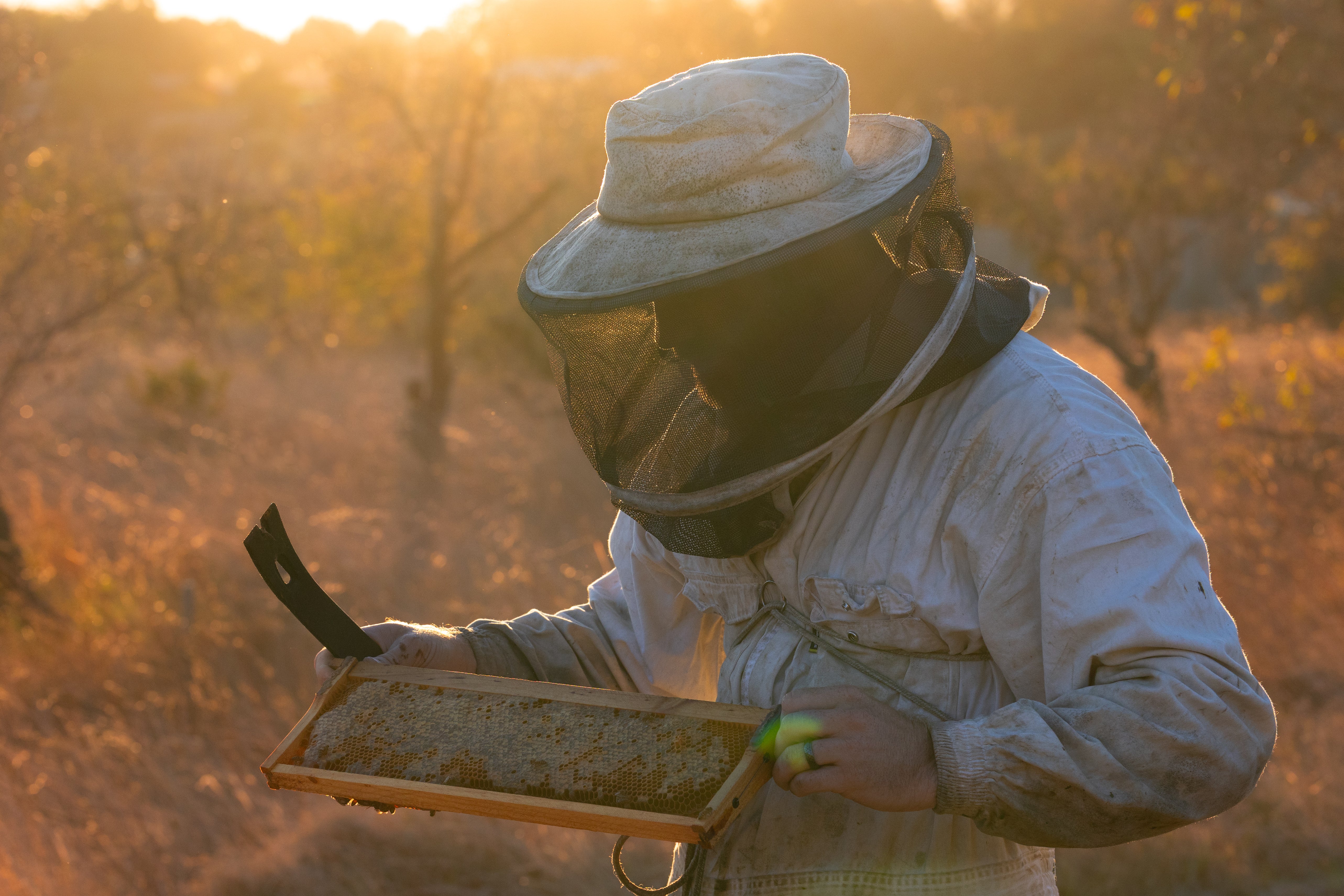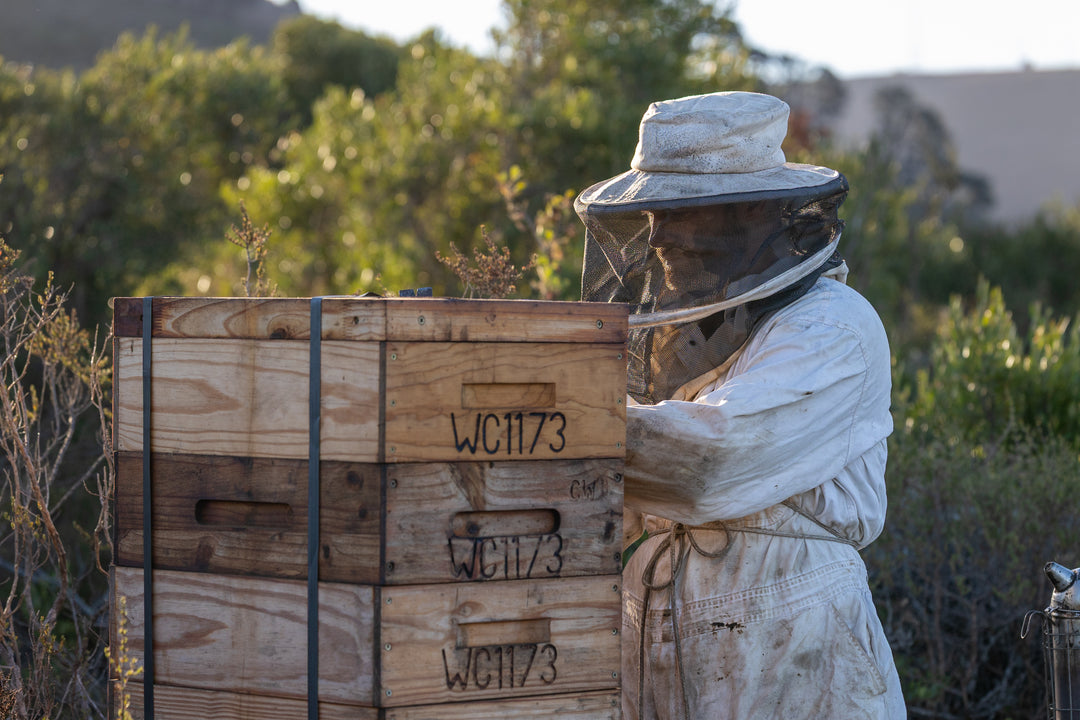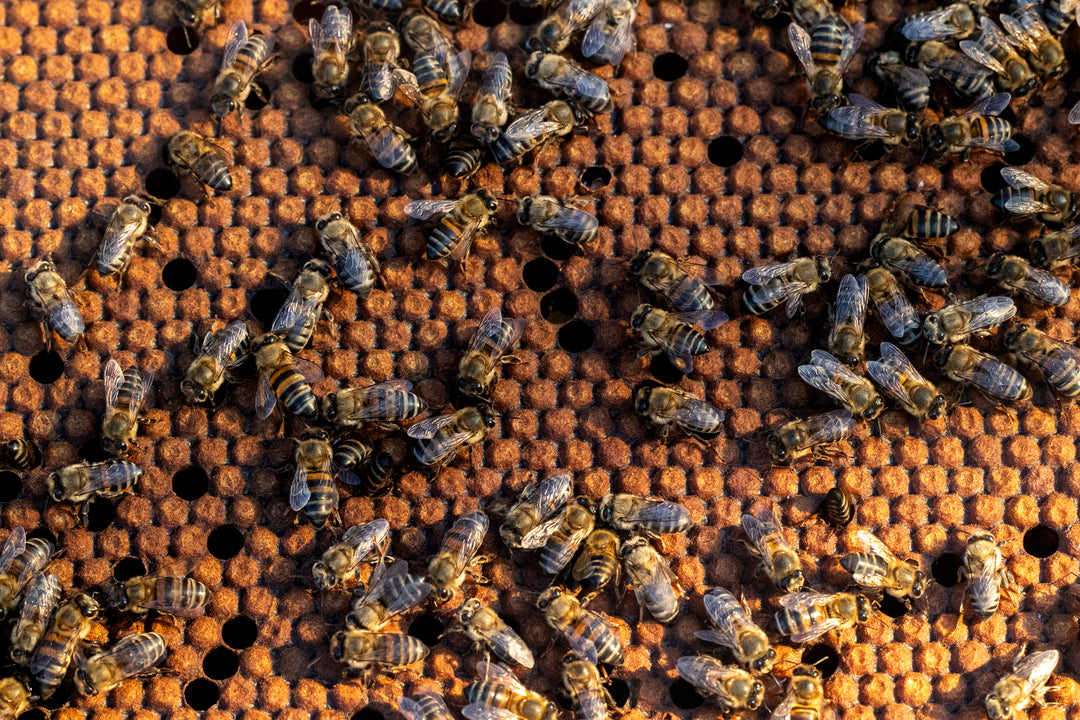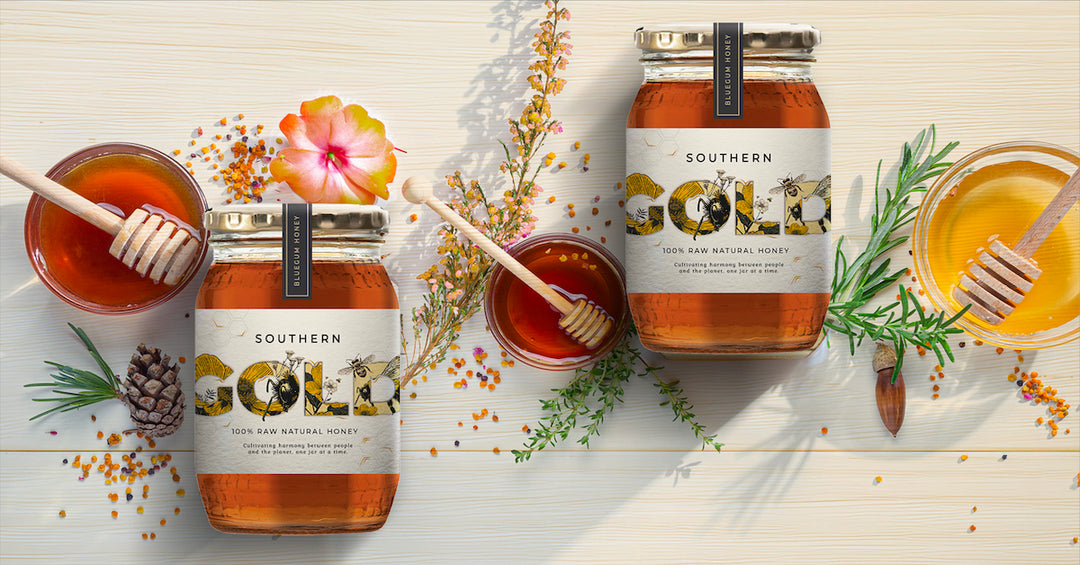
Robin Rathbone
“I've been drawn to farming for as long as I can remember—a lifelong passion that eventually led me to beekeeping. With a background in business, conservation, and farm management, I discovered commercial beekeeping in 2017 and immediately knew I had found my calling.
In 2019, I established my own beekeeping operation in Durbanville, Cape Town. Today, I run the business with my wife, Anna, combining hands-on care with a shared commitment to sustainability and quality.
What began with a few hives has grown into a purpose-driven venture producing raw honey and a growing range of value-added products, including hot honey, lip balms, beeswax face creams, and beeswax body creams. Each item is handcrafted in small batches using natural ingredients, with the same attention and care we give to our bees.
Our work is rooted in environmental stewardship and a belief in supporting local resilience—bringing you thoughtfully made products straight from our hives.”
More Than Honey
For Robin, beekeeping is about much more than producing honey—it’s about passion and purpose.
“What initially inspired me was the conservation importance of bees and how accessible it was compared to other areas of farming. For the price of one cow, you can buy 10 hives and all the necessary equipment, without needing to own land.”
Durbanville’s Urban-Nature Balance
Robin’s bees call Durbanville, just outside Cape Town, home. Their apiary sites are positioned as close to his base as possible, where they enjoy the benefits of an urban-rural balance.
“The proximity to the city allows the bees to forage most of the year without experiencing serious dearth periods,” he explains. “They mostly feed on wildflowers, Eucalyptus, Bloublommetjie, and Brazilian Pepper.”
The Challenge of Competing with Imports
Robin focuses on selling honey directly to consumers to maximise value but acknowledges it isn’t always easy.
“There’s so much imported honey flooding retail shelves, which makes it harder for small-scale local beekeepers like me to compete,” he says.
Shared Values with Southern Gold Honey
When asked how Southern Gold Honey’s commitment to sustainability, farmer support, and bee conservation fits with his own values, Robin is quick to express his support.
“My goal is to grow the business and focus more on pollination as a primary income stream. To have a local business like Southern Gold, passionate about supporting farmers and buying honey in bulk at fair prices, takes a lot of pressure off beekeepers like me.”
Robin believes collaboration is key in the beekeeping world. “Beekeepers should be working together, not competing with one another. Our competition is the imported, irradiated, and pasteurised rubbish sitting on supermarket shelves—not other local beekeepers.”




